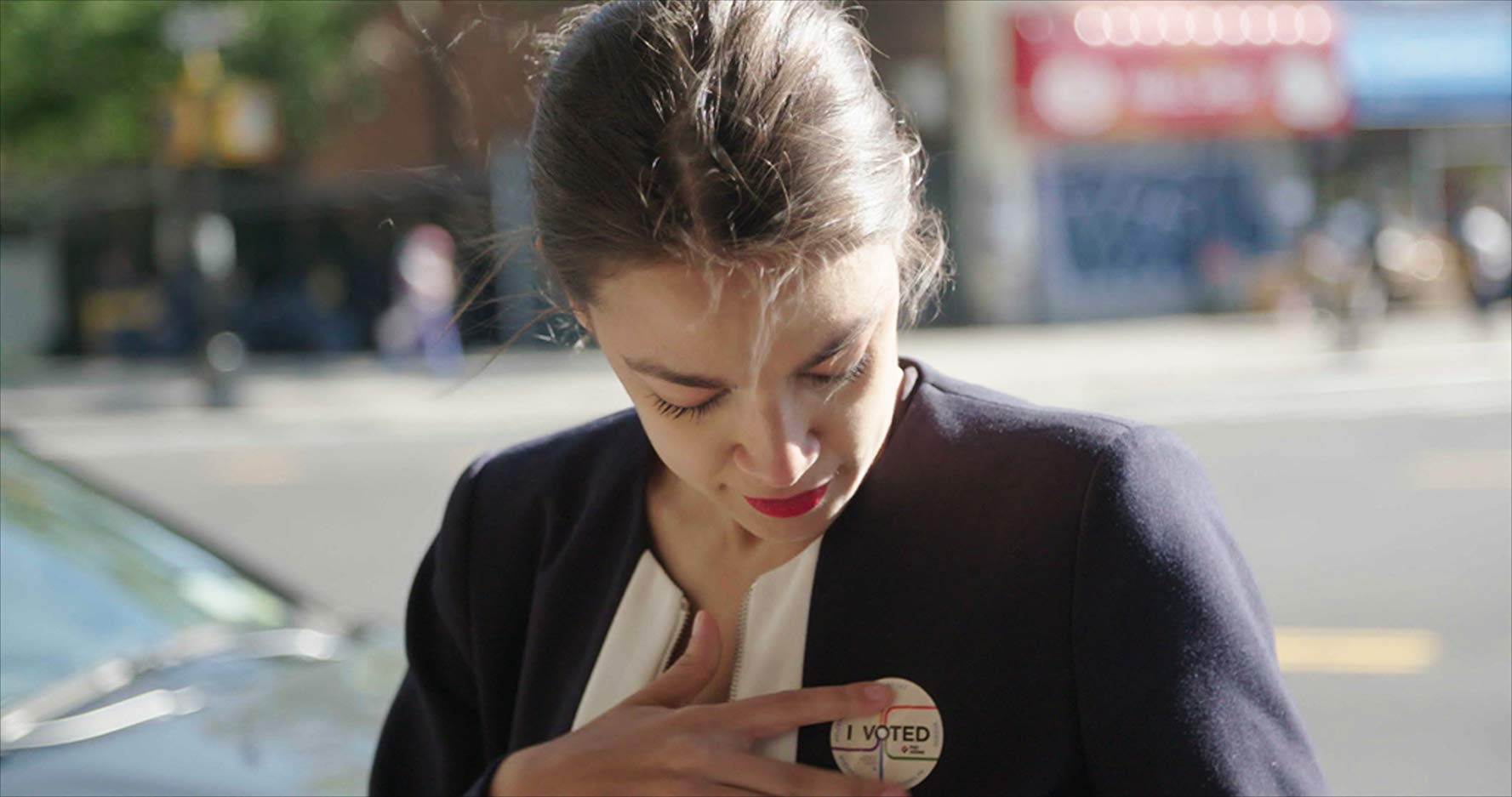
MPAA Rating: PG | Rating: ★★★½
Release year: 2019
Genre: Documentary Director: Rachel Lears
There’s a moment in Rachel Lears’ Knock Down the House where Democratic congressional candidate Alexandria Ocasio-Cortez attempts to enter her own campaign party on the night of the primary vote, but is initially prevented from entering by the door security guy. “That’s me! That’s me on the poster! I’m sorry, that’s me!” she excitedly declares as the crowd inside erupts in cheers at the realization that the candidate–their candidate–has arrived.
The scene is an apt symbol for the four 2018 campaign stories in Knock Down the House. The door to participate in the party that is Washington DC has been traditionally and systemically difficult to breach for women and people of color, with barricades and bouncers, both literal and metaphorical, attempting to keep the outsiders out and the insiders in. The four women in the film–all Democrats, all running against long-time incumbents, all grassroots campaigns–are taking considerable risks in order to step through the door, a door they should supposedly and ideally have the freedom to enter. As AOC (her Twitter handle) says in a tearful story about a road trip with her father to DC, all of this (she waves towards the white capitol buildings and mall) is ours–it’s supposed to be a government by the people and for the people, but the “people” it often represents are corporations, lobbies, and those already in power. What Cori Bush, Amy Vilela, Paula Jean Swearingen, and AOC contend is that they are walking through the door, without apology.
Even knowing the outcome of these campaigns, the film is nevertheless thrilling and inspirational, imbued with the verve and vision of the candidates. The majority of the running time is focused on AOC’s campaign movement; her bartender-to-senator story truly makes for good cinema, and her personality, poise, and political positions are captivating. Yet every one of the women profiled have compelling personal narratives and truly care about their communities. Bush–a pastor and nurse–is running for the district representing Ferguson, Missouri, Swearingen is a West Virginia native aiming to take down the corrupt and pollutive coal industry, and Vilela is motivated to provide health care for all after losing a daughter to a preventable medical condition after she was refused medical care for not having proof of insurance.
Lears’ decision to focus the documentary on AOC is likely due to the outcome of the four campaigns–only one of them truly lives up to the film’s title–which makes me wonder about the footage we never get to see, or some questions which aren’t explored, the main one being: What did AOC do that other similar campaigns didn’t do? Or is it not so much about doing as it is about being? AOC is present and active in her community, and it’s truly a community effort. Even as the other candidates have campaign teams, the movement in Queens and the Bronx is palpable and contagious, precisely because of AOC’s resilience and presence. She shows up and doesn’t leave, in the best way. In a memorable, semi-comical scene, AOC holds her first “debate” with incumbent Senator Joe Crowley, who sends *a surrogate* in his place. Though there are less than 100 people in the room, all working-class locals, AOC takes every question (and every person) seriously. She addresses policy issues, she asks tough critical questions, and she listens carefully. But she also speaks. “We are making excuses for absentee leadership!” she declares, having stood up and moved out in front of the folding table serving as a sort of debate forum podium. “I am the only one running for Congress in this room.” Mic drop.
Knock Down the House could be considered a political hagiography were it not for the genuine historical significance of AOC’s (and the other candidates’) 2018 campaign(s), as well as the raw authenticity and leadership she demonstrates. Of course, she’s aware that she’s on camera, and that affects people’s behavior and posture. Yet she also strikes me as vulnerable and honest, not putting on a performance but (again) simply being who she is. “For every ten rejections, you get one acceptance. And that’s how you win everything,” AOC says to her dancing niece as the two hand out campaign flyers on the street. She did win. How she did is a story well worth sharing and learning from–if you want a vision for how to start a grassroots movement to change the national imagination of what’s possible, here she is. I doubt any door security guy will stop her again, as if they even could.
IMDB Listing: https://www.imdb.com/title/tt9358052/
Leave a Reply